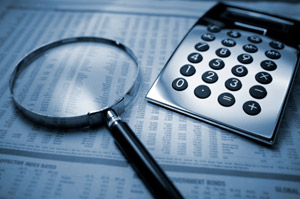 While there are plenty of jobs in traditional accounting, including everything from tax preparation to corporate accounting, some of the most exciting jobs in the industry are the numerous jobs in accounting fraud. Fraud in the accounting profession poses a serious challenge to most businesses, governments, and even stock markets, and can wreak havoc if it’s not uncovered early. Because of the seriousness of this type of fraud, the industry has created several key positions that review accounting work, investigate submitted documents, and look for ethical challenges that might lead to significant economic headaches for all stakeholders involved.
While there are plenty of jobs in traditional accounting, including everything from tax preparation to corporate accounting, some of the most exciting jobs in the industry are the numerous jobs in accounting fraud. Fraud in the accounting profession poses a serious challenge to most businesses, governments, and even stock markets, and can wreak havoc if it’s not uncovered early. Because of the seriousness of this type of fraud, the industry has created several key positions that review accounting work, investigate submitted documents, and look for ethical challenges that might lead to significant economic headaches for all stakeholders involved.
Forensic Accounting: The Investigative Job for Skilled Accountants
When fraud is suspected, forensic accountants are the first people that most businesses or government agencies call. These professionals are often seasoned accountants, with years of working in more conventional accounting and tax roles. Their experience makes them skilled investigators, since they know how most accountants manipulate funds, hide expenses, or engage in other types of fraudulent documentation to enrich their employer. In addition to experience in accounting itself, most forensic accountants have taken their education to the graduate level, earning a Master’s in Accounting or MBA degree in the field. They’ve often pursued a professional certification in auditing or forensic accounting, which further enhances their ability to spot irregularities and trace their origins to the accountant who perpetrated the fraud.
Internal Auditors: A Company’s Best Defense Against Fraudulent Activity
Forensic accountants are typically brought in from an outside agency to investigate suspected fraudulent activity, since their lack of a bias in this case is actually an asset. Businesses can’t rely on simply suspecting fraud; however, they must actively work to detect fraud early, correct it immediately, or prevent it from happening entirely. That’s where the internal auditing team comes in. This team serves as a check and balance to the traditional accounting department, with a job that usually entails examining all submitted accounting documents, reviewing electronic accounting activities, and making sure that all work adheres to GAAP guidelines and professional ethics rules.
Federal Investigators and Regulators are Essential, Too
The Securities and Exchange Commission routinely investigates accounting fraud, and that means they’re perhaps the largest public-sector employer of accountants. If the SEC, or any other business-involved government agency, gets word of a fraudulent accounting scheme or documented irregularities, they’ll often launch an investigation and send their own team of auditors and examiners to gather information. These accounting fraud experts will look at the company’s current and past financial disclosures and all of its accounting documents, and they’ll typically conduct individual interviews with each accountant. A full report will be drafted, and federal regulators will use it to determine their next course of action.
Related Resource: Comptroller
Accounting Fraud Jobs Are Diverse and Bountiful in Today’s Economy
As the corporate sector continues to recover from a half-decade of lost jobs and economy uncertainty, accountants are being hired in greater numbers. That means that professionals with an interest in finding and stopping accounting fraud enjoy a robust job market with steady growth, high salaries, and the potential for long-term advancement. These jobs often require attention to detail, high levels of professional accounting education, and even professional certification. As a reward, available jobs in accounting fraud offer higher salaries, better benefits, and the satisfaction that comes from preventing exploitation of consumers, employees, and federal agencies.